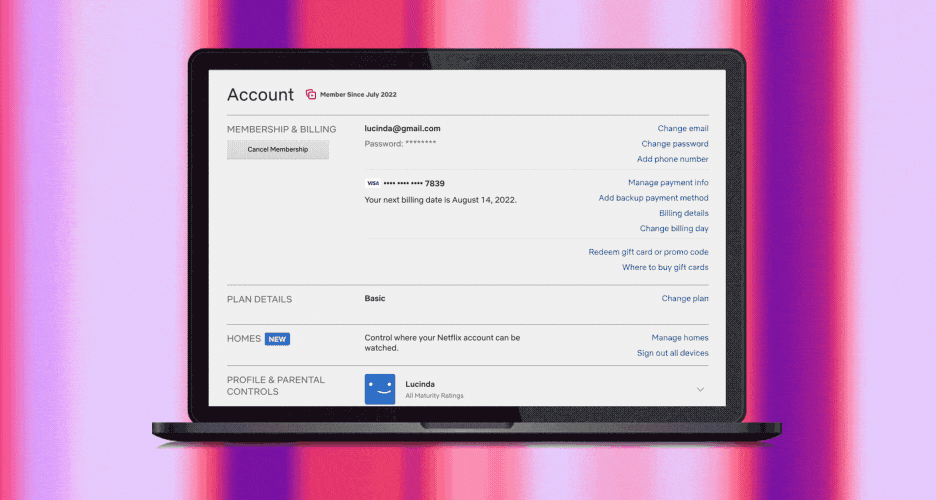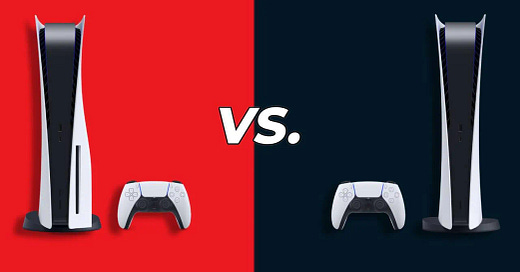
New Netflix password sharing crackdown method demoed
Netflix wants you to pay a fee if you're streaming to a TV located at an additional home for more than two weeks
➡️ The Shortcut skinny
📈 Netflix lost $50 billion in a single day in April 2022 after its stock fell sharply
🔐 It says 100 million password sharers “undermine our long-term ability to invest in and improve our service” and it’s testing ways to crack down
🏠 Test markets in Latin America will see an “additional household” fee
📱 It won’t lock out Netflix mobile users using phones, tablets and laptops
We highlighted the fact that Netflix will crack down on password sharing back in April when it lost $50 billion in value one day. Its initial solution was to test ‘extra member fees’ in Argentina, El Salvador, Guatemala, Honduras and the Dominican Republic.
Now, these same test markets are going to experience the next phase of Netflix’s attempt to end password sharing: a small fee for using the account in other homes. Netflix hasn’t announced this fee for other countries, but it’s a matter of when, not if, given the language used in its recent earnings calls. If you’re sharing your password with, say, two or three households, Netflix is going to ask each of those extra households to pay $2.99 per month, according to the official Netflix website.
🔐 How many are password sharing now?
Netflix has previously estimated that 100 million people are password sharing, and it didn't mince words in its latest post that this “undermines our long-term ability to invest in and improve our service.”
Doing some simple math, if its claim of 100 million password sharers were all paying for the middle-tier HD plan that costs $15.49 per month, Netflix would be earning nearly $1.55m each month and almost $18.6m per year. That number would be even larger if they opted for the 4K plan.
😅 Mobile users and vacationers spared
You won’t be locked out of your account if you’re traveling and watching Netflix on a smartphone, tablet, or even a laptop, according to Bloomberg, which has a few more details left out of the official Netflix blog post.
There’s apparently a two-week grace period for using Netflix on a TV or set-top box before you have to pay up. Traveling outside of the home for longer than that also has an easy enough fix. Netflix says: “You will soon be able to control where your account is being used - and remove homes at any time - from your account settings page.”
That’s more problematic when you suddenly have to coordinate with your ex about who’s turn it is to be the primary household on their parents’ account.
The latest PS5 restock news from The Shortcut
⚖️ This sounds fair, but…
Netflix is already very expensive compared to other streaming services like Disney+, Hulu and HBO Max in the United States, for example, hence why password sharing and outrage over new restrictions have become the norm.
It’s already $20 a month for the top-tier Netflix option – the only one that’s in 4K and quickly becoming the standard with so many 4K TV deals out there. The next rung down is Netflix’s $15.49 plan limited to HD and two screens at the same time.
And there are going to be some loyal customers who get penalized even though they aren’t egregious password sharers. Sure, most long-term summer vacation renters won’t be affected, but what if part of the family remains at home for longer than a two-week duration? What about people who stream at work on a TV every so often during their lunch break? What about kids who go away to college (which already costs enough)?
This sounds fairer than charging an ‘Extra Members’ fee, but it’s far from perfect. Password sharers who have to pony up may have one thing to look forward to: Netflix is eager to launch a tier with commercials at a reduced price.
With the Netflix password-sharing crackdown seemingly around the corner, a cheaper ad-supported tier may prove to be a popular solution – second only to thousands of people canceling Netflix.













